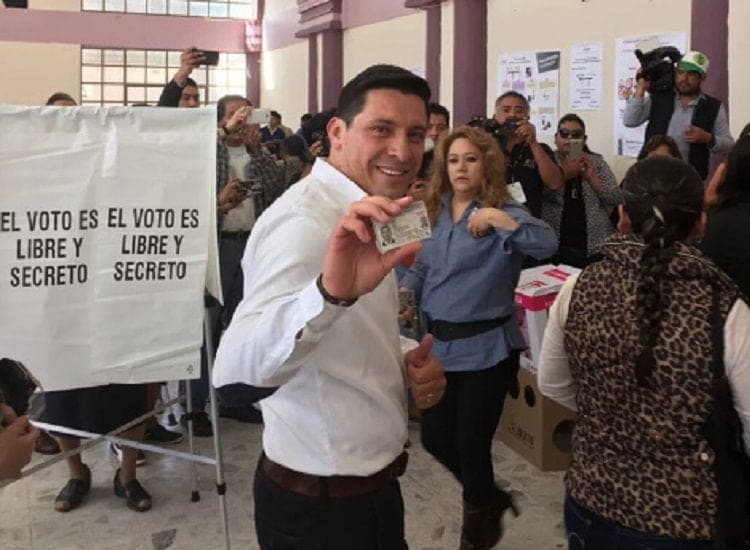MEXICO CITY — A priest in the diocese of Texcoco north-east of Mexico City has become the first clergyman in Mexico’s history to be charged under the country’s secularist constitution with seeking to influence the outcome of an election.
Even with a 2013 amendment to the constitution enshrining freedom of religion, two politicians campaigning in municipal elections last year who attended a Mass in the town of Chiautla, along with a priest at the church, were charged under Mexican election regulations.
Last year a party called the National Regeneration Movement (MORENA) claimed that the candidate of the governing Revolutionary Institutional Party (PRI), Ángel Melo Rojas, was campaigning when he attended the Mass celebrated by Father Filiberto Campos Carrillo in his Texcoco parish of San Andrés Chiautla.
Initially, the electoral watchdog, the Electoral Tribunal of the State of Mexico, dismissed the complaint, and Melo Rojas took office as municipal president of Chiautla on December 1, 2015.
But four days later the national body responsible for prosecuting ‘electoral crimes,’ known as FEPADE, annulled the elections and stood down Melo Rojas, on the grounds that he had “invalidated the electoral proceedings as well as the principle of secularity” by “inviting the people to a Mass of blessing of his political project and then to the start of his campaign event.”
The authorities then called new elections in March 2016, which Melo Rojas again won. He took office for the second time last April. However, both the FEPADE and the Electoral Tribunal continued to look into the matter.
FEPADE recently ruled that not only had Melo Rojas broken the law, but so had the former MORENA candidate, Juan Carlos González Moreno, as well as the priest, Campos Carrillo, who had declared to the Tribunal that both candidates on different dates had taken part in eucharistic celebrations.
It is not the first time in Mexico that politicians have been fined for violating the secularist electoral laws, but it is the first time that a priest has been. FEPADE judged that both the candidates and the priest should be sanctioned for violating regulations binding on both political parties and religious associations.
Those regulations ban the Church from taking part in Mexican political life and political parties from using acts of worship of religious artifacts as part of political campaigns or to support political organizations. The fine for each is 500 days of minimum salary, coming to about $2,000.
At the heart of the story lies the failure of Mexico’s politicians to introduce a proper framework in which the principles of true religious liberty can be lived with maturity and civic responsibility. Cases such as that of Chiautla show that Mexico continues to be weighed down by anachronistic rules that have failed to modernize the legal frontier between the Mexican state and the different religious bodies in the country.
Theoretically, Mexican law leaves no room for doubt: the law forbids any religious associations and their ministers from taking part in any political activity.
The Churches may not create or take part in any organization with political objectives; religious ministers may not take on roles proper to public functionaries at any level of government; and of course, they cannot either put themselves forward for election nor favor political parties or candidates during elections. Failure to abide by any of these rules will lead to fines.
Still, the measuring stick that was used in this case to punish the Chiautla priest was bizarrely the same as the one that was used to accuse the political parties involved. FEPADE’s inquiry showed that the political parties were investigated in relation to 15 different violations of the electoral law.
The priest’s punishment was imposed after he testified to the Electoral Tribunal that it was unusual for the candidates to have appeared at the church in the middle of their political campaigns.
In its 2015 sentence, the Tribunal explained that Campos had to answer to the authorities in relation to a complaint of “violation of secularity” following the PRI candidate holding a campaign event in his church.
The priest declared that “in fact the Eucharist was celebrated in order to ask God for the success of the campaign of the candidate as mayor” while denying “any demonstration of an electoral character, nor was there any call to support his campaign.”
However, the priest’s written declaration also indicates that “on 25 May 2015 a Mass was celebrated to mark the start of the MORENA campaign, without there being any demonstration of an electoral character.”
This declaration was sufficient for FEPADE to indict the priest for illegal participation in electoral processes.
How serious the punishment will be is not yet known, but because this is a minor, rather than federal, issue, no one will go to prison.















